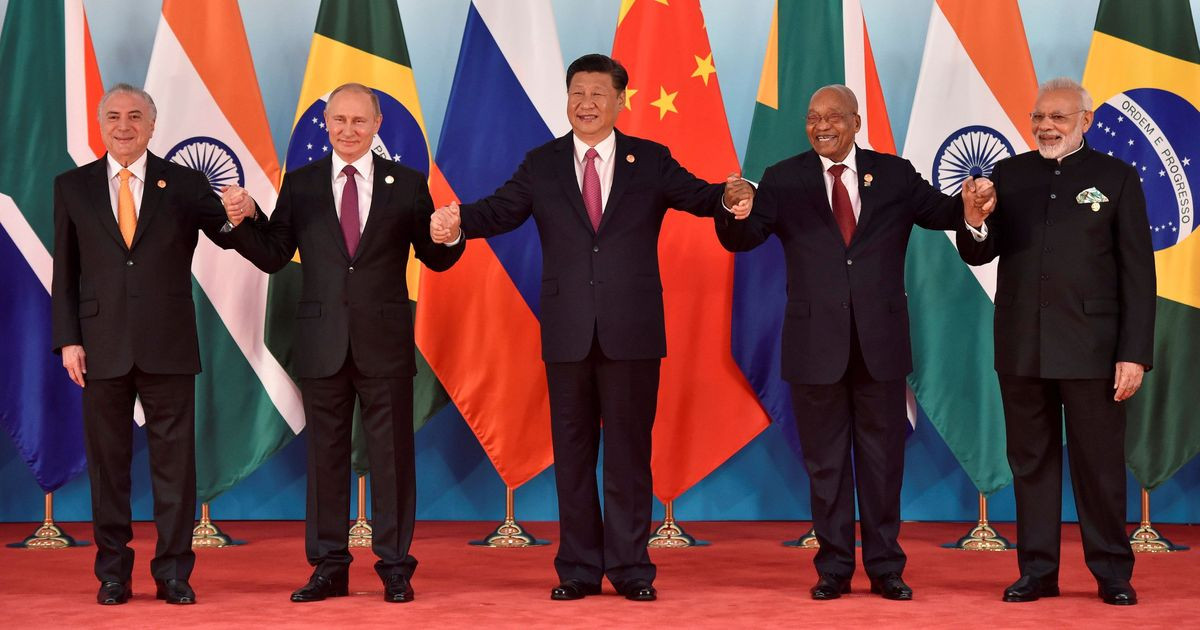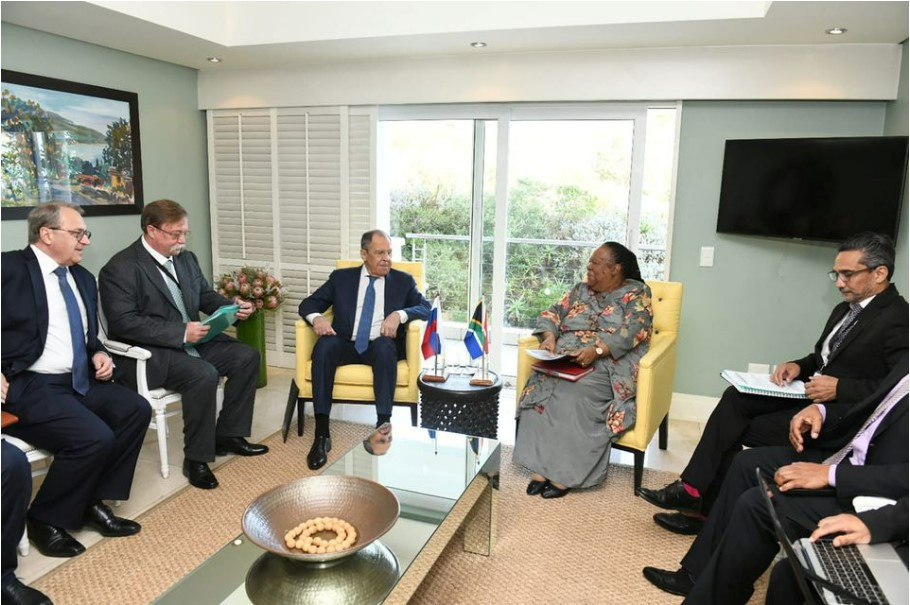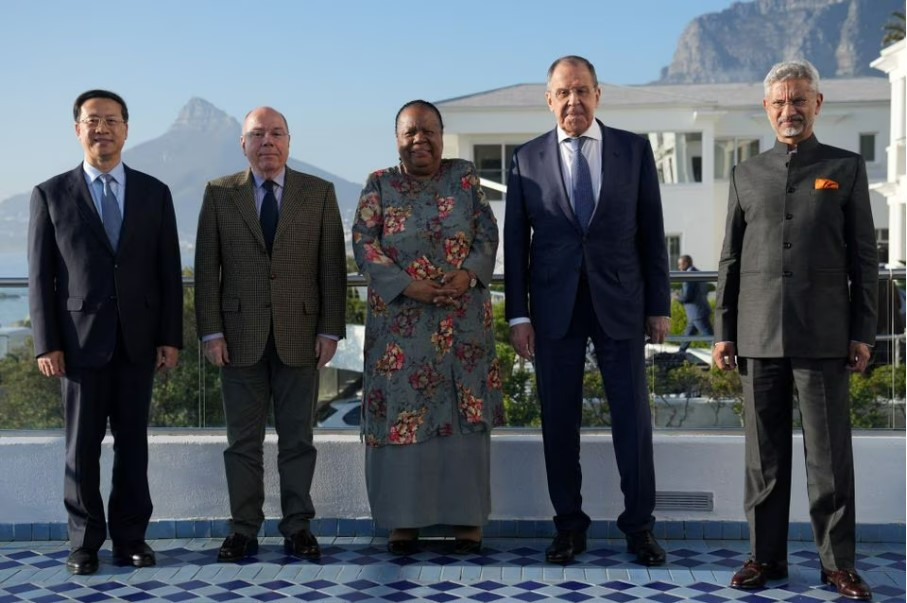
BRICS ambitious power play
[ad_1]
PUBLISHED
August 20, 2023
KARACHI:
In an era defined by shifting global dynamics, the emergence of BRICS (Brazil, Russia, India, China, and South Africa) as a united bloc has sparked discussions about a potential challenge to Western hegemony.
This diverse group, now, represents over 3 billion people, 40% of the world’s population, and a significant share of global GDP. While the concept of BRICS challenging Western dominance raises both hopes and scepticism, experts believe the alliance has the potential to modify the polarised geopolitical world dominated by the United States. Predictions about the potential of the five-nation bloc are not new. In fact, Fidel Castro foresaw the possibility of these nations halting recolonisation attempts. “The heroic spirit of the Russian people… together with the People’s Republic of China and countries like Brazil, India, and South Africa, constitute a group with the necessary power to stop the attempt to recolonise the planet,” said the former Cuban leader.
Most experts view the rise of BRICS beyond its collective economic power. Together, the bloc encompasses political influence as well. Western powers have long dominated international institutions like the United Nations and the World Bank and BRICS nations see themselves as underrepresented in these power structures, leading to calls for reform to reflect the global landscape. Their economic strength provides leverage, enabling them to demand a more equitable distribution of power and decision-making. Moreover, with the rise of Beijing and the resurgence of Moscow, posing a threat to the existing unipolar order, the West’s sway over global affairs faces challenges, marking a significant shift in the world’s geopolitical centre.
For developing countries, BRICS offers an attractive alternative platform to exert influence in key areas such as climate change, trade, and technology standards. Unlike the Western bloc, BRICS promises financial initiatives like the New Development Bank, aiming to fund infrastructure projects in developing nations, showcasing its focus on cooperation for mutual benefit.

Next week, leaders of countries representing over a quarter of the global economy will meet in Johannesburg, South Africa’s capital. Up for discussion at the BRICS summit starting on August 22: transforming this loose club of nations into a geopolitical force challenging Western dominance in global affairs.
While details about what the five-nation bloc leaders plan to discuss are scarce, expansion is expected to be high on the agenda. According to experts, 40 nations, including Saudi Arabia,
Argentina, and Egypt, have expressed a strong interest in joining the bloc formally or informally. Interestingly, the scepticism about a world order believed to favour the United States and its wealthy allies unites the bloc and many of its future members.
At the summit in South Africa and beyond, BRICS nations aim to project themselves as alternative development partners to the West. Discussion about the bloc’s intentions to de- dollarise global finance will also take centre stage. In the long run, BRICS nations intend to offer an alternative to the International Monetary Fund (IMF) and the World Bank – lenders based in Washington DC. The talk of a BRICS currency, proposed by Brazil earlier this year, is also a potent warning to the dollar, which has dominated geopolitical calculations for decades.

Since the Johannesburg Summit’s theme emphasises how BRICS can build ties in a world increasingly becoming a theatre for competition among world powers, wider indications suggest the bloc will continue to focus on displaying leadership, particularly in terms of developing and including the global south in multilateral systems.
Another interesting development expected to raise eyebrows at next week’s Jo’burg confab is the interest from countries like Saudi Arabia, Turkey, and Egypt to join the bloc. Even in its early innings in this geopolitical macro game, BRICS expansion will be seen as an expansion of its influence – both economic and otherwise. If analysed neutrally, BRICS offers an attractive platform to nations shunned or excluded from the global system, including Iran. However, during the three-day summit, BRICS leaders will face a crossroads with the prospect of expanding the group.
Meanwhile, with the inclusion of new members like Saudi Arabia and the UAE alone, the bloc can potentially trigger a profound shift in the existing global order. If this happens, the expansion could serve as a transformative catalyst, propelling BRICS from the periphery of global affairs to a central and influential player on the world stage.
At its core, the decision to embrace new entrants embodies a strategic vision challenging the G7 countries’ long-standing dominance. The G7 has traditionally shaped global economic policies, political agendas, and international discussions. However, a broader BRICS alliance, fortified by Global South countries, could effectively counterbalance Western supremacy. This should enable BRICS to transition from being perceived as peripheral to a diverse and powerful coalition. The transition will not just be about increasing numbers but also expanding the diversity of interests and approaches, as these nations provide invaluable strength and resources to the coalition.
It’s worth noting that over the past decade, we’ve witnessed a world faltering in cooperation. Developed countries have not met commitments to the developing world and consistently shift responsibility to the global south. Furthermore, developing countries have felt bullied and dictated by the G7 for too long. The idea of a more equal voice when setting the world agenda grips many developing nations. A more global BRICS means the G7 countries would have to discuss and share more with the global south. The impact of US interest rate hikes on economies and aggressive Western sanctions on Russia have accelerated discussions on reducing reliance on the US dollar, creating a desire for a multilateral architecture like BRICS.

Challenges ahead for BRICS
While sceptics dismiss economic dominance as mere political dreaming, it signifies more than wishful thinking. The alliance boasts China’s and India’s economic giants, the world’s second-largest global economy and the most populous nation, respectively. Should these powerhouses set aside differences, the path to greater influence over global affairs might become less treacherous for BRICS. Such unity could pave the way for a smoother global order rebalancing, shifting away from Western dominance and fostering more equitable international discussions.
Regarding expansion, debate centres on the core definition, the nucleus of the five permanent members of BRICS, and how this nucleus will evolve in relation to potential new entrants. As countries including Saudi Arabia express interest in joining, there’s contemplation of a structured approach. Potential members might enter as observers, with gradual, incremental progression to full membership. Striking a balance is crucial; expanding too rapidly could lead to unintended consequences for existing members. Criteria, models, and frameworks must be carefully considered to ensure a smooth and effective expansion process.
Common currency
Together with a wider group of nations, the vision of a BRICS common currency as an alternative to the US dollar and a shield against sanctions is captivating. However, its realisation is far from simple. This proposed currency, backed by tangible assets like gold and precious metals, stands in contrast to the US dollar, deriving its value from the US sovereign capacity’s credit. While the idea has appeal, practical considerations and complexity have led to recalibrating priorities. The feasibility of this endeavour requires careful examination, considering the intricate web of international economics.
China’s significance within BRICS transcends economic might. Its role as the world’s second-largest economy is complemented by shaping global institutional architecture. The New Development Bank establishment in China and its leadership within the Shanghai-headquartered institution highlight China’s pivotal position. Beyond the BRICS bloc, China’s pursuit of a sovereign digital currency and a multilateral currency platform underscores its influence in the evolving landscape. These endeavours hold the potential to redefine international financial norms and challenge established systems.
In a rapidly transforming world, BRICS grapples with multifaceted challenges, from expansion dynamics to currency reform and changing global power dynamics. The alliance’s ability to navigate these complexities will determine whether it can transform aspiration into reality, carving a more influential role on the global stage.
Road ahead
If the 2010 BRICS conception concerned policymakers in Western capitals, they must closely watch this upcoming summit. In conclusion, the rise of BRICS presents a challenge to Western hegemony, offering an alternative narrative in a world hungry for multipolarity. The alliance has potential to reshape global governance, foster cooperation, and bring about more inclusive international institutions. However, the path forward is riddled with complexities and uncertainties. Whether BRICS can challenge Western dominance successfully while maintaining global stability hinges on this diverse blocs’ ability to find common ground and navigate the intricacies of a rapidly evolving world order that may eventually fall in its favour.
[ad_2]



